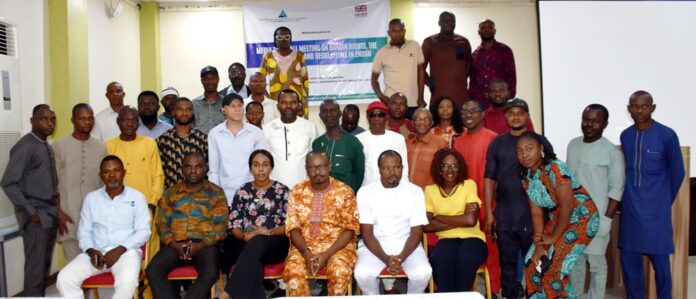The Nigerian media have been advised to promote awareness and ensure the effective implementation of the Nigeria Police Act 2020 in order to foster a more accountable and community-oriented police force in Nigeria.
This was the resolution at the Media Town Hall Meeting on Human Rights, the Police Act 2020 and Regulations, held at Bon Hotel Enugu on Thursday.
The event, which drew six journalists from each of the five South Eastern States of Nigeria, has as it’s theme “Enhancing Police Governance: Deepening understanding of the Police Act 2020 and regulations across Nigeria”, was organised by Rule of Law and Empowerment Initiative, also known as Partners West Africa Nigeria (PWAN).
Addressing the gathering, the Monitoring and Evaluation Officer, Partners West Africa Nigeria (PWAN), Mrs Nkem Okereke, said the project seeks to address critical gaps in the understanding and application of the Police Act 2020 and the accompanying regulations within the Nigerian Police Force (NPF).
She described PWAN as a women-led non-governmental organization dedicated to enhancing citizens’ participation and improving security governance in Nigeria and West Africa broadly, which it achieves through our Rule of Law, Citizens Security, and CSO strengthening Program Areas.
“Historically, Nigeria has faced systemic issues in its policing, characterized by allegations of corruption, misuse of power, and a significant disconnect between police operations and community expectations. These problems have been exacerbated by a lack of comprehensive understanding and inconsistent implementation of policing laws among the officers and management of the NPF.
“To address this, PWAN with support from the Foreign Commonwealth Development Office (FCDO) is implementing the project “Enhancing Police Governance: Deepening Understanding of the Police Act 2020 and Regulations across the six geopolitical zones; specifically in Kano, Plateau, Lagos, Edo, Enugu, Borno, and the FCT.
“PWAN aims to achieve this through capacity building for senior police officers, sensitization of the public on the provisions of the Act, and media town hall meetings on the provisions of the Act and media sensitizations.
“This will improve the knowledge of the police officers and citizens of recent changes and reforms within the police force and further improve human rights application as contained in the Act.”
In a paper titled “Promoting awareness of the Nigeria Police Act: The Role of the Media”, the Facilitator for PWAN, Mr Bash Olasupo, observed that the media plays a crucial constitutional role in holding governments accountable and responsible to the people.
This, he said, could be done through investigative reporting, public awareness, facilitating dialogue, monitoring implementation of government programmes and advocacy in the discharge of media role as a watchdog of the society, promoting democratic principles and encouraging responsible governance.
“The Freedom of Information Act (FOIA) in Nigeria aims to promote transparency and accountability in governance by granting citizens the right to access information held by public authorities. It is rooted in the Nigerian Constitution, which guarantees citizens’ rights to freedom of expression and access to information.
“The media plays a crucial role in this framework by acting as a watchdog and facilitating the dissemination of information to the public. Through investigative journalism, the media can uncover issues of misconduct and corruption, thereby supporting the objectives of the FOIA.
“However, challenges such as bureaucratic resistance, inadequate implementation of the FOIA, and threats to press freedom can hinder these efforts, making it essential to strengthen legal protections and promote a culture of openness in Nigeria.”
Mr Olasupo noted that there is no provisions of the Police Act that specifically mention the media but there are many provisions that impliedly relate to the media, focusing on the relationship between law enforcement and news reporting.
“The Act emphasizes the importance of transparency in police operations, which includes engaging with the media to disseminate information about police activities, operations, and policies.
“The Nigeria Police Force is encouraged to maintain a proactive public relations role, ensuring that accurate information is shared with the media to foster public trust and awareness.
“The Nigeria Police Act underlines the necessity of a constructive relationship between the police and the media, balancing the need for transparency with the need for operational security.”
Earlier, the Executive Director RULAAC, Mr Okechukwu Nwanguma described the Nigeria Police Act 2020 as a huge improvement on what existed but needs to be gender responsive and contain inclusion of safeguards.
He noted that the Act equally needs further amendments and will contain implementation and monitoring.
“Implementation strategy should be multi-stakeholder Police Reform Implementation Committee with a three-year work plan to anchor implementation of reform (as recommended at the 2014 National Conference).
“Police officers need to be educated on the improved provisions, same as public advocacy for citizens enlightenment and political will to enhance efficiency and effectiveness of the police as envisaged by the Police Act 2020.”
Responding, journalists at the event called for regular and periodic training for both the media and police officers, have indepth knowledge of the Nigeria Police Act 2020 and asked police to always give journalists opportunity to interview paraded suspects to effectively discharge their constitutional mandate.
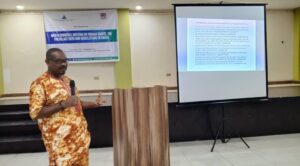
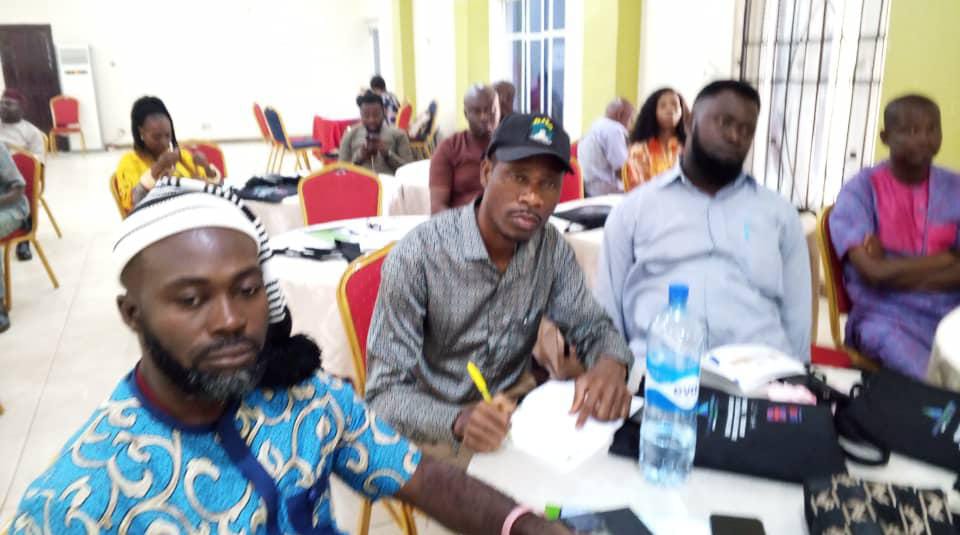
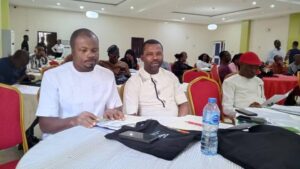
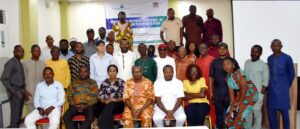

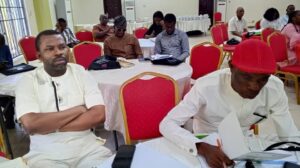
There was equally panel discussion on Media Reporting, mainstreaming of the Police Act 2020, in relations to reporting of arrest, stop and search, profiling and other related issues.###





